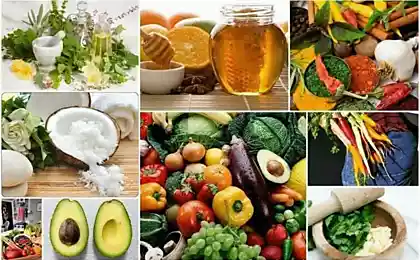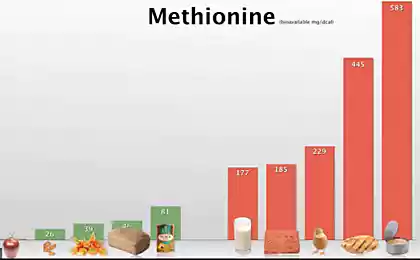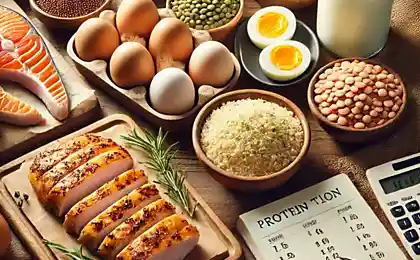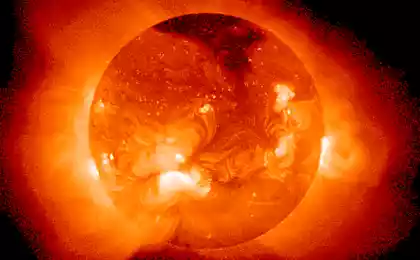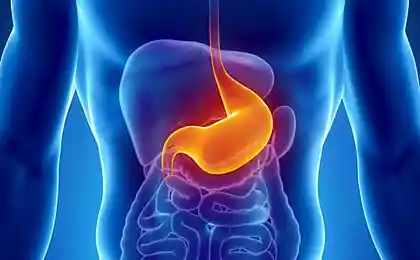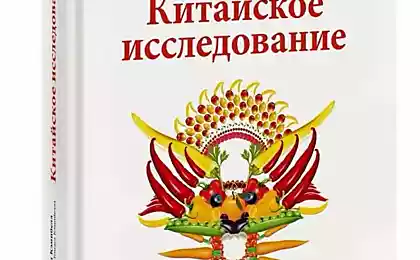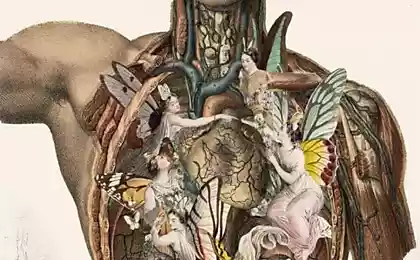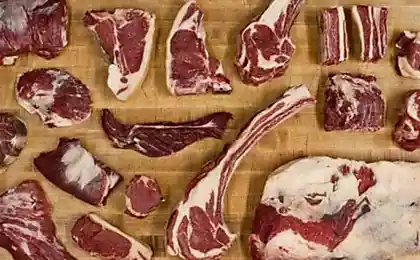1945
The process of protein synthesis of living plant food.
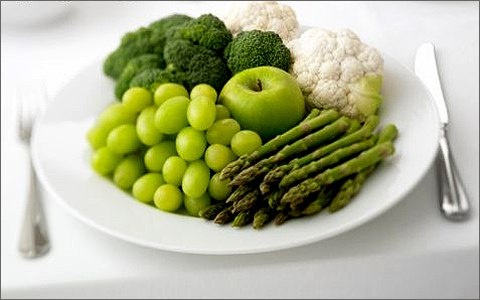
The constituent units of the protein molecule, it "blocks" are amino acids - organic acids with the aminated chain (included in the structure of a molecule of nitrogen).
These amino acids for the synthesis of body's own proteins can be obtained from animal protein, spending quite a lot of energy on the huge cleavage of the protein molecule, and amino acids to the "revival" of the amino acid chain of the dead, that is, its supply of energy to make suitable for protein synthesis.
But there is another possibility: obtain the amino acids of the carbohydrate chains of starch and carbohydrate foods (fruits, vegetables, cereals), aminiruya them and turning them into amino acids capable of further synthesis without additional energy if they are obtained from the raw "live" fruits, vegetables, nuts, cereals.
Last question: where do we get the nitrogen amination of carbohydrates? - It is easily solved. Because it takes the air to have favorable intestinal microorganisms and the synthesized amino acids that are delivered via the bloodstream to the liver as a raw material for the synthesis of the protein.
In addition, nitrogen is released in the body by the decay of the old protein molecules in metabolism. The amount of it is day 3, 7. biologically valuable food (raw vegetable), this nitrogen is easily included in the carbohydrate chains of products that are not killed, denatured by heat treatment.
Synthesize their own amino acids, full of energy, and therefore, the presence of the DNA matrix, forming a self-protein molecule with its complex and quaternary structure of individual specificity.
The process of protein synthesis of carbohydrate foods in the body is broken only when receiving the hormones of the adrenal cortex and other cytotoxic drugs that suppress cell growth. And they are very often prescribed to patients with allergic diseases, rheumatism, asthma, arthritis, glomerulonephritis, etc.
Thus, people who escaped hormone therapy, get pure proteins the body of pure food - carbohydrates, the digestion which is not accompanied by rotting, allocation of cadaveric poisons, their neutralization in the liver and the formation of the final toxic products of metabolism - urea, creatine, creatinine, uric acid.



